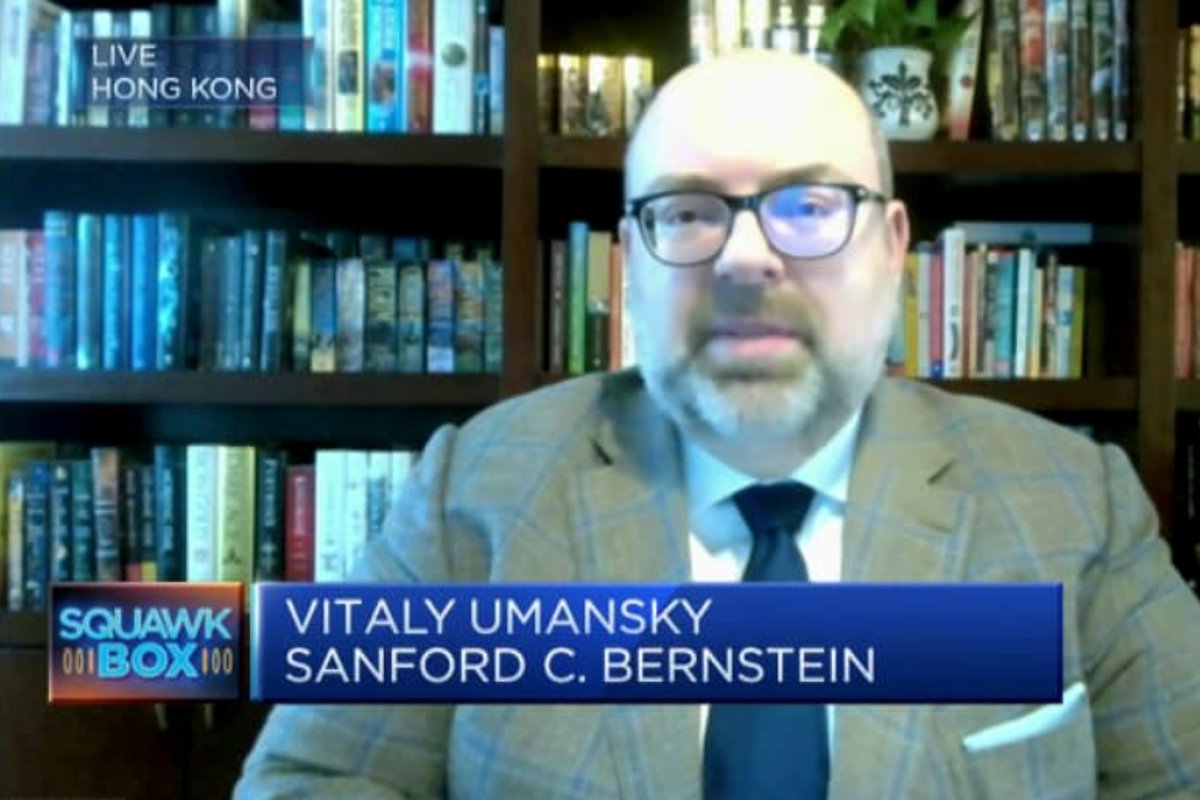Posted on: September 6, 2022, 08:54h.
Last updated on: September 6, 2022, 03:16h.
Macau’s gaming industry won’t recover to its pre-pandemic business levels until at least late 2023 or early 2024, a leading analyst focused on the Chinese casino enclave opines.

Vitaly Umansky, the senior analyst of Global Gaming at Sanford C. Bernstein, went on CNBC’s “Squawk Box” last Friday to express his outlook for what was the world’s richest gaming hub before COVID-19. While other major gaming markets, including Las Vegas, quickly bounced back from the pandemic and are now experiencing gaming revenues in excess of 2019 levels, Macau’s six casino operators continue to flutter.
China’s maintenance of its “zero-COVID” policy and Macau’s adherence to the draconian pandemic response is to blame. The approach has kept cross-border traffic in and out of Macau nearly nonexistent. Umansky doesn’t see visitation to Macau’s casinos improving until leisure travel from the mainland and foreign markets improves significantly.
“This is not going to happen in one quarter or even a few months. This is a year-plus type of recovery, and we’re not likely to get back to pre-COVID levels until the end of next year and into 2024,” Umansky said. “That’s the reality.”
Investor Warnings
Four of the six casino operators in Macau are publicly traded in the US. Shares of those companies remain well below their 2019 valuations.
Compared with late January 2020, Las Vegas Sands stock is down 44%, Wynn Resorts is 53% lower, and Melco Resorts has lost 136% of its worth. MGM Resorts, which has greatly benefited from record gaming play in Las Vegas and at several of its other US casinos, is the only bright spot. Its stock price is nearly 6% higher today.
Galaxy Entertainment and SJM Resorts, the two other concession holders in Macau, have also seen their market caps plunge. Galaxy shares remain down 16%, and SJM is 61% below its January 2020 valuation.
Umansky advises investors searching for a quick buck to look elsewhere. But for patient investors, the Bernstein analyst sees an opportunity.
As an investor, you have the option of sitting and waiting, watching the data and continuing to watch visitation slowly creep up,” Umanasky said. “Investors need to look at the government policies in China with respect to zero-COVID and the resumption of travel.”
Those who opt to wait for improved operating conditions before investing, Umansky added, “might miss part of the upside.”
Umansky says savvy, short-term investors have been making money in Macau by buying and selling on the weekly news flow and the high volatility of the space. But he warns the public that “it’s a very difficult thing to do for most investors.”
GGR Improves
Umansky says that the casinos will continue reeling until China and Macau ease border restrictions and do away with mandatory testing and quarantines.
“It’s very difficult to come to Macau,” Umansky explained. “Almost everything hinges on travel resumption.”
Bernstein gaming checks for the first week of September support Umansky’s opinion that more leisure travelers are needed. Gaming revenue for the first four days of the month was “weak,” according to the brokerage, with the casinos winning about $11 million a day.
In September 2019, the casinos won $2.7 billion — or about $90 million daily.
